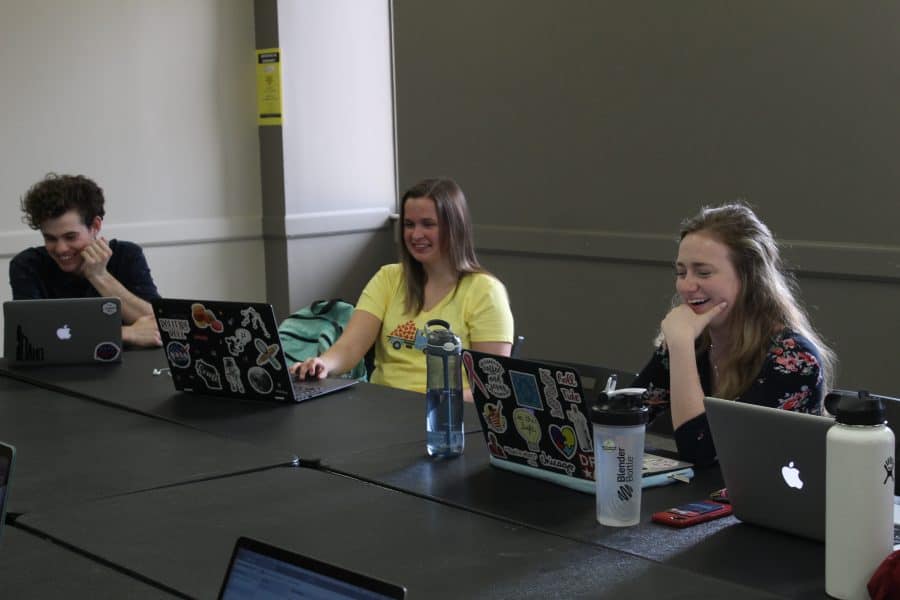Leafy green plants stand tall in the garden at Aliceville Elementary School in Pickens County, Alabama. If you look closely, you can see these are tomato and basil plants. You might even notice that this is a hydroponic garden, meaning the plant buckets are filled with water instead of soil.
This project is the brainchild of the Design For America (DFA) organization on campus. DFA is a multidisciplinary organization that is design-based, so engineering, communications, business, and any other major can be incorporated into the projects.
“We work together to create the next generation of social entrepreneurs and solve really cool and hard problems,” said Omer Bensaadon, a senior management information sciences major and one of the studio leads in the organization. “So we pick a problem every year and then we tackle it head-on.”
One thing that separates DFA from other organizations on campus is its lack of hierarchy. There is no president or vice president position, in hopes that everyone involved can have equal amounts of opportunities.
“In Design For America, I want everyone to feel like they are the president of their own thing,” Bensaadon said. “You’ve got to focus on the way people in the room are feeling, and, if you can make people feel good about being there, they’ll give you their best work.”
This year’s hydroponic garden project came as a result of work with DFA nationals on how to mitigate food insecurity. With a user-centered approach, DFA members were able to identify a problem in Pickens County elementary schools.
“Our user design process means that we empathize with the user and work with them to solve the problem,” said Annie Meyer-Rasmussen, a freshman anthropology and Spanish major. “We went over at the beginning of the year and felt out what the problem might be, which ended up being a problem with nutrition in the school and community.”
For the better part of a semester, DFA members drove out to Pickens County to volunteer in after school programs at Aliceville Elementary School to get to know the students and community.
After a few months, DFA launched its own program, STEMgineers, to teach at-risk third graders about hydroponic gardens, and the math and science that goes with it.
However, managing the garden has had its challenges.
“The main challenge is that it’s an hour away and we can’t monitor the garden as closely as we’d like to,” Meyer-Rasmussen said. “For example, last week we went over and we noticed that the fogger inside the garden had had roots growing around it.”
Along with the hydroponic garden, lesson plans were also created to help teach students how the plants grow and why they’re healthier for them than other foods. Gabie Wingett, a freshman nursing major, was in charge of putting together this aspect of the project.
“I started researching different lesson plans and Alabama state standards for third and fourth graders for lesson plan ideas,” Wingett said. “My favorite part was when we’d go back and re-work the lesson if the students weren’t getting it, and then seeing the light bulb go off when they did get it and be excited about it.”
The culmination of the DFA harvest project is set to occur on April 14 with the Harvest Festival. DFA members will take the tomatoes and basil they’ve grown and make fresh pizzas for the students and their families to enjoy.
“We wanted to show the kids that what they grew, they can eat,” Wingett said. “We want them to continue to do this after our project is done.”









